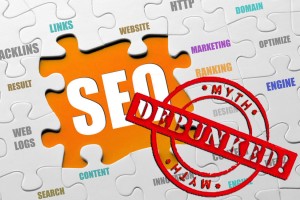Small Business SEO in a Changing Landscape
The world of SEO is changing. Changes in the algorithms used by major search engines such as Google have redefined how a business can improve its page rankings. It’s no longer enough to have a standalone SEO campaign; today, you need to integrate your SEO tactics with other aspects of your online marketing if you want to find success and your social media presence is a big part of this.
The reality is that SEO by itself simply doesn’t work anymore. Combining your social media and SEO tactics is not just a good idea — it’s something that’s a must. A strong social media presence won’t directly increase your page rankings for your main site. However, it can help to spread the word about your brand and links to your site. If other people share these links, that will only help your overall SEO. This is the type of effective link building that works in the new world of SEO.
Small businesses also need to refine their focus on their target audience in order to succeed. More specifically, businesses need to understand the type of online content that customers are looking for in order to deliver this content to them. High quality content not only helps to attract customers but will help with Google rankings.
One way that businesses can help to improve their SEO presence is by utilizing the small business SEO services offered by eVisible. Our site has several free and premium tools available that let small business owners to do some basic but critical SEO work themselves. This can include keyword research, tracking social media involvement and monitoring the readability of content on a site.
Doing this kind of basic SEO work on your own can be extremely valuable for a small business. However, there are still likely to be many aspects of SEO that a business owner won’t be able to do on their own. One of the most common SEO questions for small local businesses is how they can fit SEO into their (likely very limited) budget. The good news is that eVisible can help businesses of any size improve their online marketing with tactics that include search engine optimization. For a relatively small expenditure, a small business can positively impact their online presence.
 Posted on March 24, 2014
Posted on March 24, 2014
 Posted on August 5, 2013
Posted on August 5, 2013

 Posted on July 2, 2013
Posted on July 2, 2013 Posted on May 20, 2013
Posted on May 20, 2013